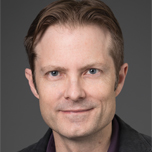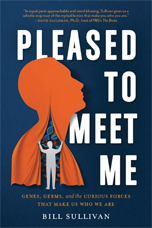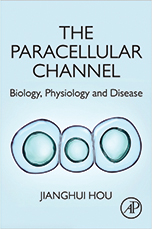Reading material
Pleased to Meet Me: Genes, Germs, and the
Curious Forces That Make Us Who We Are
By Bill Sullivan, Showalter professor of pharmacology and toxicology, microbiology and immunology, Indiana University School of Medicine

Why are you attracted to a certain “type”? Why are you a morning person? Why do you vote the way you do? What makes you you. “ Pleased to Meet Me” describes in everyday language how genetics, epigenetics, microbiology and psychology work together to influence personality and behavior. Mixing cutting-edge research with pop culture and humor, “Pleased to Meet Me” is filled with insights that shine a light on who we really are — and how we might become our best selves.
A Practical Guide to Writing a Ruth L. Kirschstein NRSA Grant
By Andrew D. Hollenbach, co-director of basic science curriculum, school of medicine, andprofessor, department of genetics, Louisiana State University Health Sciences Center New Orleans

This second edition includes changes to the application since the first edition and continues to provide F-series grant applicants and mentors insider knowledge on the process by which these grants are reviewed, biases that contribute to reviews, the extent of information required in the application, a deeper understanding of the exact purpose of each section of the application, and key suggestions and recommendations on how to best construct every section of the application. This book is a solid resource for trainees and their mentors to use as a guide when constructing F30, F31, and F32 grant applications.
The Paracellular Channel: Biology, Physiology and Disease
By Jianghui Hou, associate professor of medicine, Washington University

The Paracellular Channel: Biology, Physiology and Disease offers a cohesive and unifying picture of the critical functions of paracellular channels (tight junctions) in different tissues. This new class of ion channel utilizes a completely different mechanism to create ion passage pathways across the cell membrane. This volume outlines common principles that govern the organization and regulation of these diverse cellular structures, describes the methodology of study and highlights the pathophysiologic consequence of abnormal structures and functions of the paracellular channels in human diseases.
Are you an ASBMB member who has published a book in the past year?
If so, we'd like to feature your work in an upcoming issue fo ASBMB Today. Please email a synopsis (<100 words), an image fo the book's cover and your headshot.
Enjoy reading ASBMB Today?
Become a member to receive the print edition four times a year and the digital edition monthly.
Learn moreGet the latest from ASBMB Today
Enter your email address, and we’ll send you a weekly email with recent articles, interviews and more.
Latest in People
People highlights or most popular articles

2026 ASBMB election results
Meet the new Council members and Nominating Committee member.

Simcox wins SACNAS mentorship award
She was recognized for her sustained excellence in mentorship and was honored at SACNAS’ 2025 National Conference.

From humble beginnings to unlocking lysosomal secrets
Monther Abu–Remaileh will receive the ASBMB’s 2026 Walter A. Shaw Young Investigator Award in Lipid Research at the ASBMB Annual Meeting, March 7-10 in Washington, D.C.

Chemistry meets biology to thwart parasites
Margaret Phillips will receive the Alice and C. C. Wang Award in Molecular Parasitology at the ASBMB Annual Meeting, March 7-10 in Washington, D.C.

ASBMB announces 2026 JBC/Tabor awardees
The seven awardees are first authors of outstanding papers published in 2025 in the Journal of Biological Chemistry.

Decoding how bacteria flip host’s molecular switches
Kim Orth will receive the Earl and Thressa Stadtman Distinguished Scientists Award at the ASBMB Annual Meeting, March 7–10, just outside of Washington, D.C.
